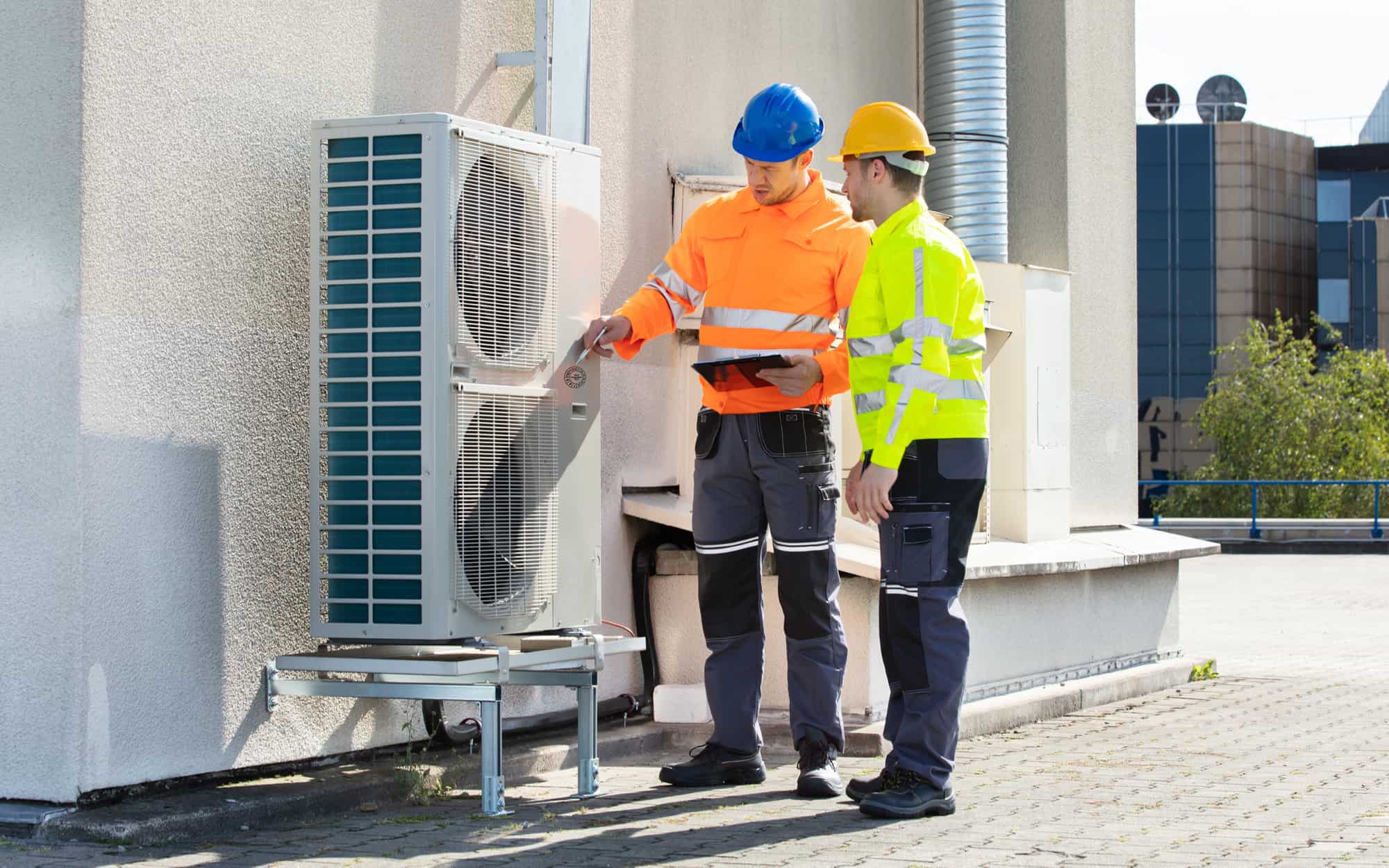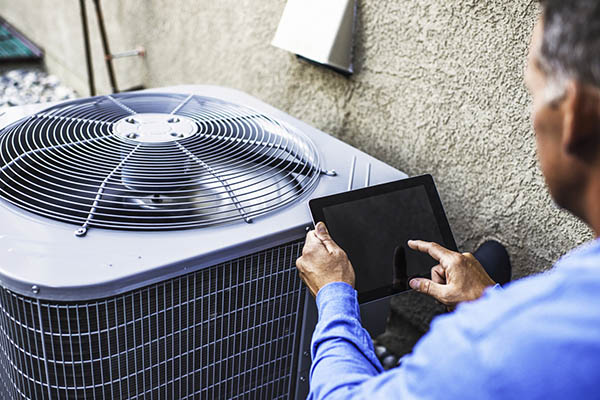A Comprehensive Guide to Cooling And Heating Jobs: Skills, Training, and Task Leads
The heating and cooling industry is a dynamic field that calls for a special set of skills and training. Experts must have strong interaction and analytical capabilities while paying close attention to detail. Vocational training and qualifications are essential for those aiming to enter this market. As need for energy-efficient innovations grows, so do work prospects. Comprehending the requirements and pathways can open up diverse possibilities within this sector. What are the vital elements that can affect profession development?
Crucial Abilities for Cooling And Heating Professionals
Technological knowledge is crucial, Cooling and heating specialists must additionally have a varied set of crucial skills to be successful in their field. Communication abilities are extremely important, as professionals often engage with customers to describe intricate concerns and options in reasonable terms. Analytical abilities are similarly important; experts need to fix and detect HVAC system malfunctions successfully.

Additionally, solid interest to information assurances that installations and repair work are completed accurately, lessening prospective issues. Physical endurance and dexterity are required, given the needs of the task, consisting of lifting hefty equipment and operating in confined areas.
Time management abilities enable HVAC professionals to focus on jobs efficiently, assuring timely service delivery. Adaptability is crucial in a swiftly developing sector where new innovations and methods arise regularly. Collectively, these abilities boost a HVAC expert's performance, assuring they satisfy customer needs while keeping high standards of service.

Training and Accreditation Needs
To excel in the cooling and heating sector, people should undergo details training and get pertinent qualifications that confirm their skills and knowledge. Normally, aiming HVAC specialists start with a secondary school diploma or equivalent, followed by professional training or an associate degree in cooling and heating modern technology. These programs frequently cover fundamental principles, system design, and repair service strategies.
In enhancement to official education, acquiring qualifications from acknowledged companies, such as the Epa (EPA) and North American Service Technician Quality (NATE), is vital. EPA certification is required for taking care of refrigerants, while NATE qualification shows effectiveness in various HVAC subjects.
Hands-on experience through apprenticeships or internships further boosts a person's qualifications. Constant education is additionally vital, as the heating and cooling sector advances with brand-new technologies and policies. By satisfying these training and certification demands, individuals place themselves for success in an affordable job market.
Profession Paths in the Heating And Cooling Sector
With the required training and accreditations in position, people can discover different occupation paths within the HVAC sector. Typical functions include heating and cooling technician, who does repair work, maintenance, and installation of home heating, ventilation, and a/c systems. Another alternative is ending up being a heating and cooling designer, concentrating on system layout and effectiveness, usually requiring advanced education in design concepts.
Furthermore, people may go after sales functions, concentrating on heating and cooling product or services, which necessitate solid communication abilities and technological understanding. Some might select to advance right into administration settings, supervising groups and tasks while guaranteeing conformity with industry requirements. Possibilities exist in energy auditing, where professionals analyze power use in structures and suggest renovations. Each course provides unique difficulties and incentives, satisfying diverse skill sets and interests within the a/c field.
Work Prospects and Work Opportunities
The a/c sector boasts a strong demand for qualified specialists, driven by the recurring demand for climate control systems in household, industrial, and commercial setups. As energy efficiency and environmental sustainability come to be significantly vital, the need for skilled technicians remains to increase. Task potential customers are especially beneficial for those with specialized training and qualifications, as employers look for people with the most up to date expertise in energy-efficient innovations and smart HVAC systems.
According to market records, the employment of heating and cooling technicians is forecasted to grow considerably over the next decade, reflecting the market's resilience even during financial changes. In addition, as older systems require replacement and brand-new buildings arise, opportunities include both experienced experts and novices. Many heating and cooling companies are also broadening their services, developing further openings (HVAC Jobs Only job board). Generally, people getting in the cooling and heating area can expect a robust task market, with enough chances for growth and stability
Tips for Advancing Your Heating And Cooling Job
As experts browse their cooling and heating careers, going after continuous education and learning and specialized training can substantially boost their improvement leads. Taking part in qualification programs, such as those provided by North American Technician Quality (NATE) or the Refrigeration Service Engineers Society (RSES), can substantially enhance a specialist's reputation and data base. Networking within the industry is just as important; going to trade convention, workshops, and regional market events can open doors to brand-new opportunities and partnerships.
In addition, getting experience in varied areas, such as business systems or energy effectiveness modern technologies, allows specialists to come to be well-rounded specialists - HVAC Jobs Only. Establishing soft skills, consisting of interaction and problem-solving capacities, is crucial for those going for supervisory or management duties. Remaining notified about market patterns and arising modern technologies assurances that A/c specialists stay affordable in a swiftly developing field, placing them for long-lasting profession success.

Often Asked Questions
What Is the Ordinary Income for HVAC Technicians?
The typical wage for heating and cooling technicians varies by place look these up and experience however normally varies between $40,000 and $60,000 each year. Elements such as qualifications and field of expertise can substantially affect gaining possible in this area.
Exist Specialized HVAC Area to Think About?
Yes, there are specific a/c areas, consisting of domestic, commercial, and commercial heating and cooling, as well as areas like refrigeration, energy monitoring, and interior air high quality. Each expertise offers distinct abilities and occupation chances within the market.
How Can I Locate Cooling And Heating Task Openings?
To locate a/c task openings, individuals must discover on the internet job boards, business internet sites, industry-specific online forums, and neighborhood profession colleges. Connecting with specialists in the area can additionally reveal covert possibilities and potential job leads.
What Equipment Are Necessary for Cooling And Heating Work?
Essential devices for a/c work consist of multimeters, refrigerant evaluates, monkey wrench, air pump, and leak detectors. These tools make it possible for service technicians to diagnose, fix, and preserve home heating, air, and air flow conditioning systems properly and successfully.
Can I Work in Cooling And Heating Without Qualification?
Yes, one can function in cooling and heating without certification, although chances might be limited. Many employers favor accredited prospects, and people without certification may discover it challenging to advancement in their jobs or access particular job settings.
To stand out in the Cooling and heating industry, individuals have to undergo specific training and acquire pertinent certifications that confirm their skills and understanding. Generally, striving HVAC specialists begin with a high school diploma or equivalent, followed by vocational training or an associate level in Cooling and heating innovation. With the needed training and qualifications in area, individuals can check out various occupation courses within the Heating and cooling sector. According to sector reports, the work of A/c service Find Out More technicians is forecasted to expand substantially over the following years, reflecting the market's read this post here resilience even throughout financial changes. Yes, there are specific A/c fields, including property, business, and commercial A/c, as well as locations like refrigeration, energy administration, and indoor air high quality.